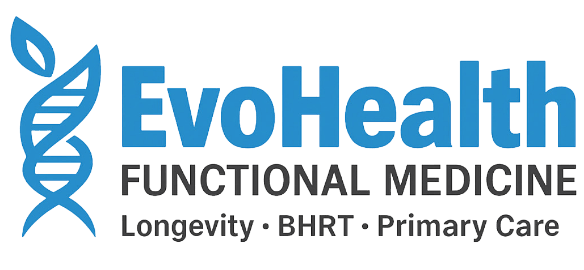Antibiotics have saved millions of lives by treating once fatal infections. These medications can work quickly and effectively from strep throat to pneumonia. Yet, as powerful as they are, antibiotics can also cause unintended side effects. One of the most significant is antibiotic-associated dysbiosis, a disruption of the natural balance of microorganisms that live in the gut.
Your digestive tract is a community of trillions of bacteria, viruses, and fungi collectively known as the gut microbiome. These microbes are not just passive residents — they help digest food, regulate metabolism, protect against infections, and communicate with the brain. When antibiotics interfere with this delicate system, the results can range from mild digestive upset to long-term health concerns.
In this article, we’ll explore the condition known as antibiotic-associated dysbiosis, how it develops, why it matters, and how you can protect your gut health during and after antibiotic use.
What Is Dysbiosis?
Dysbiosis is a term that describes an imbalance in the microbial community of the gut. Typically, the microbiome is diverse and balanced, with beneficial bacteria helping to keep harmful organisms in check. A healthy gut microbiome produces essential nutrients, maintains the lining of the intestinal wall, and boosts the immune system.
When dysbiosis occurs, this balance is disturbed. Harmful or opportunistic microbes may grow unchecked, beneficial species decline, and overall diversity is reduced. Antibiotic-associated dysbiosis is one of the most common causes of this imbalance because antibiotics do not distinguish between “good” and “bad” bacteria — they target both.
How Antibiotics Trigger Dysbiosis
Antibiotics are designed to kill or inhibit bacteria. The problem is that they act broadly. While antibiotics can eliminate the bacteria causing an infection, they can also destroy large populations of protective bacteria.
Certain antibiotics, especially broad-spectrum ones like amoxicillin or ciprofloxacin, are particularly disruptive. They can reduce beneficial species such as Lactobacillus and Bifidobacterium while allowing potentially harmful microbes, like Clostridium difficile, to thrive.
Researchers have found that antibiotic use can lower the production of short-chain fatty acids, compounds that good bacteria normally produce to support gut lining health and regulate inflammation. This reduction weakens the intestinal barrier, sometimes leading to “leaky gut,” where toxins and undigested food particles pass into the bloodstream. Over time, antibiotic-associated dysbiosis can create a ripple effect, impacting digestion, metabolism, immunity, and even mood regulation.
Symptoms of Dysbiosis
Common symptoms of antibiotic-associated dysbiosis include:
- Bloating and excess gas
- Abdominal cramps or discomfort
- Diarrhea or loose stools
- Constipation or irregular bowel movements
- Food sensitivities or intolerances
- Frequent yeast infections or skin flare-ups
- Fatigue or brain fog
The type and severity of symptoms vary from person to person. In more severe cases, antibiotic-associated dysbiosis can lead to infections such as C. difficile, which can cause life-threatening diarrhea and inflammation of the colon.
The Long-Term Impact of Dysbiosis
While some people recover quickly after antibiotics, research shows that the microbiome does not always fully return to its pre-antibiotic state. Reduced diversity and missing species may leave long-term vulnerabilities.
Scientific studies suggest that antibiotic-associated dysbiosis can increase the risk of:
- Irritable bowel syndrome (IBS): Dysbiosis may trigger chronic digestive discomfort.
- Inflammatory bowel disease (IBD): Altered gut bacteria play a role in Crohn’s disease and ulcerative colitis.
- Allergies and asthma: A less diverse microbiome is linked with a higher likelihood of immune dysfunction.
- Metabolic disorders: Imbalances may contribute to weight gain, insulin resistance, and type 2 diabetes.
- Mood disorders: The gut-brain axis means dysbiosis may affect neurotransmitters and play a role in anxiety or depression.
These risks show why it’s important not to dismiss antibiotic-associated dysbiosis as just a temporary stomach upset. Protecting and restoring gut health after antibiotics is vital for whole-body wellness.
Who Is Most at Risk?
Several factors increase the likelihood of developing antibiotic-associated dysbiosis:
- Taking broad-spectrum antibiotics rather than targeted ones
- Using antibiotics repeatedly or for long courses
- Being a child, since the microbiome is still developing
- Being an older adult, as diversity naturally declines with age
- Having a diet low in fiber and high in processed foods
- Experiencing chronic stress or illness, which already weakens the microbiome
Strategies to Protect Gut Health
Fortunately, there are ways you can reduce the risk of antibiotic-associated dysbiosis or to support recovery if it has already occurred. These include:
- Probiotics: Supplements or fermented foods like yogurt, kefir, sauerkraut, and kimchi can help replenish beneficial bacteria. Some strains, such as Saccharomyces boulardii, have been studied specifically for reducing antibiotic-related diarrhea.
- Prebiotics: Fiber-rich foods such as beans, oats, bananas, and asparagus feed good bacteria and help them grow.
- Balanced diet: Reducing processed foods and added sugars helps prevent the overgrowth of harmful microbes.
- Hydration: Drinking enough water supports digestion and helps flush out toxins.
- Timing of probiotics: Taking probiotics a few hours after antibiotics may help them survive better in the gut.
- Gradual recovery: Remember that the microbiome takes time to heal. Following gut-friendly habits for weeks or even months after antibiotic use is important.
Contact EvoHealth Today
Antibiotics are an essential part of modern medicine, and there are times when their use is lifesaving. But it’s important to understand that they are not without cost. Antibiotic-associated dysbiosis reminds us that every dose can have ripple effects on the microbiome and, by extension, on overall health.
Antibiotics are essential when truly needed, but should not be used unnecessarily, especially for viral infections like the common cold. Supporting gut health before, during, and after antibiotic use is crucial for improved recovery and long-term well-being.
If you are concerned about antibiotic-associated dysbiosis or want to explore ways to support your gut health, contact EvoHealth today to restore balance and promote long-term wellness.
